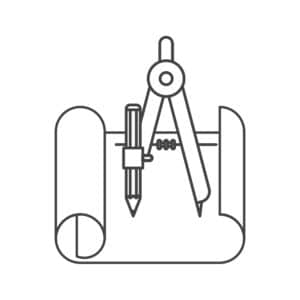Hiring a civil engineer can mean spending a good amount of money that you may not want to spend. However, there are times when it would be a good idea, and maybe even necessary, to hire a professional civil engineer to help you with certain issues involving your land.
The following are eight times when you might have to consider hiring a civil engineer.
1) You want to add new buildings to your property.
2) You would like to subdivide your land.
3) You want to both subdivide and develop your property.
4) Drainage issues exist on your property.
5) Erosion issues exist on your property.
6) Your property is close to a major creek.
7) When your municipality recommends that you hire an engineer.
8) When you want a new engineer for your project.
1. You Want to Add New Buildings to Your Property
If you own a property where you currently have a residence or business and you want to add any new buildings, the services of a civil engineer could be required for a couple of reasons.
An engineer would be able to create a layout plan for your proposed building and any associated items such as new paving and utilities. The layout would have to checked to see that it conforms with local ordinances.
Also, a stormwater management plan and a grading plan would most likely have to be designed by a licensed professional engineer. These plans would also have to conform to local ordinances.
Advertisement
2. You Would Like to Subdivide Your Land
If you have a property that is large enough to subdivide, a civil engineer would be able to design a proposed layout of lots that you like and that still meets the requirements of the local municipality. A land subdivision plan is something that would have to be designed and drawn with a degree of accuracy that requires special software that a civil engineer would have and be able to use.
3. You Want to Both Subdivide and Develop Your Property
A civil engineer with a good knowledge of ordinance requirements for your municipality would be able create plans for a project that involves both the subdivision of land and the development of the new lots that would occur right after the subdivision.
The engineer would be able to work with you to obtain any state and federal permits that also might be required for construction to begin. A civil engineer would have the software required to properly create the designs for both your land subdivision and land development project.
4. Drainage Issues Exist on Your Property
A civil engineer is the person to contact if you have consistent stormwater drainage issues on your property. These issues could include constant ponding of water behind your house that gets into the building and excessive flooding of stormwater inlets. The engineer would be able to determine the causes of your problems and design solutions to resolve the issues. The engineering experience and software required for the analysis of drainage issues is something that a civil engineer would have.
5. Erosion Issues Exist on Your Property
If you find that after heavy rain storms you notice the excessive erosion of dirt anywhere on your property, you may want to contact a civil engineer.
A civil engineer should be able to design and recommend a solution to stop or at least reduce further erosion issues. An engineer would be able to determine the rate of stormwater runoff that is causing the erosion and design a way either to redirect the flow somewhere else or to reduce the amount of flow. An engineer could also create a plan that involves the installation of erosion control measures such as matting or riprap aprons.
Related: 8 Ways to Prevent Erosion in Land Development Projects
6. Your Property Is Close to a Major Creek
The location of a property that is close to a major creek or any other body of water could present particular challenges during the land subdivision or land development design process. Being near a body of water could mean extra construction permits that have to be obtained. It could also mean extra restrictions with regard to the layout of your project.
It would be a good idea in this situation to consult with a civil engineer to discuss these challenges and how they could affect what you want to do with your property.
Related: Floodplain Analysis (A Guide for the Non-Professional)
7. When Your Municipality Recommends That You Hire an Engineer
There are times when your municipality might recommend that you contact or hire a civil engineer. This would be the case if you approach the municipality with your own sketch plan of what you want to do with your property and the municipality says that you should hire a civil engineer that can design a more detailed design plan for you. A plan that is eventually to be approved by the municipality may have many requirements that a civil engineer would be able to ensure are met within your project.
Advertisement
8. When You Want a New Engineer for Your Project
If you have already hired a civil engineer for your subdivision or land development project, there are many reasons you might want to hire a new engineer. Maybe the original engineer created plans you did not like and the engineer was not willing to be flexible with the design. It could be that the engineer was not paying attention to your input regarding design decisions.
Engineers can have different personalities and can also create different engineering designs. If you do not like the work of your current engineer, then consider hiring a new one.
Hiring a Professional Can Be Worth the Cost
As you can see, there are many reasons to hire a civil engineer. It might seem like a lot of money you are spending, but there are times when hiring the help of a civil engineer could be worth the cost. The alternative of not hiring this kind of professional from the beginning could cost you more in the long run through the extra cost and time involved in trying to figure things out on your own.
Related: What Is a Land Development Engineer?



